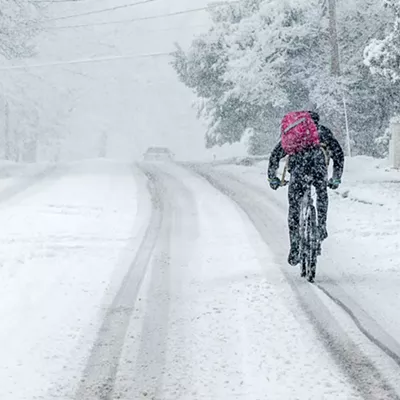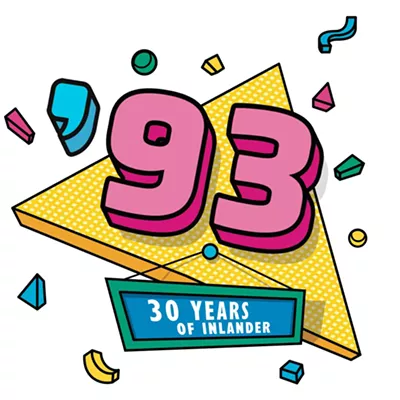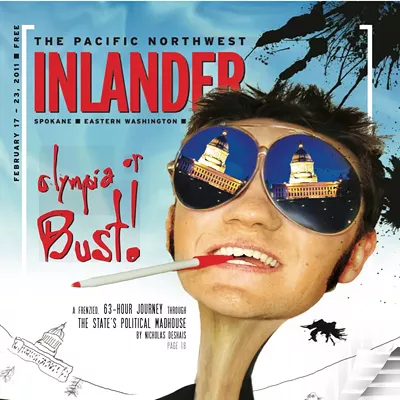Richard Rush is leading us into the unknowable future. "They won't say paper or plastic anymore. I don't know what they'll say, but they won't say that," Rush says of grocery store baggers. The first-term Spokane city council member led an effort last week in City Hall to promote the use of reusable grocery bags. Refusing to follow the lead of such worldly cities like Seattle, San Francisco and New York -- which have all made moves to impose a fee on one-time use bags -- Rush and his compatriots are using mind games instead.
"The cultural tool in place is paper or plastic. Everybody knows what that means. You fall outside the societal norm when you fall outside of paper and plastic," Rush says. "You want to belong, you want to be part of the family. ... When we make sustainability the societal norm, then we'll have people participating in this."
Mayor Mary Verner agrees, saying Spokanites have a great desire to join. She points to the high participation in the Lilac Bloomsday Run and Hoopfest as examples of this. Not quite the same as bringing cloth bags to the grocery store, but it's better than taxing shoppers, says Verner. "A voluntary change in behavior is always preferred over a mandatory change in behavior," she says.
Still, Verner is excited about the program. In a proclamation issued last week, Verner declared Nov. 3, "THE FIRST DAY IN THE REUSABLE BAG ERA." (Yes, the phrase appears bolded and in all caps on the official, gold-stamped document.)
No tax, no fee. Just a program developed by the Washington Food Industry called "CHOOSEreusable," a program already being implemented at 90 percent of the grocery stores in the area.
Jan Gee, president and CEO of the association, says the voluntary outreach program will be using such propaganda stalwarts as buttons, static-cling stickers and magnets to convert the masses.
"We're going to be asking people in the store if they brought their bag and if they did, we'll thank them," Gee says. "A friendly reminder, that's the best thing."
According to Verner's proclamation, nearly 70 million disposable bags are used annually in the Spokane region. Roughly, that's about 152 bags per person every year, a tall order for eradication by a voluntary program. Currently, 3 percent of shoppers bring their own bags. The program targets raising that number to 10 percent in a year and to 50 percent in five years.
Unlike Spokane, other cities appear to walking a path blazed by Ireland. In 2002, a 33-cent bag fee was instituted there. Within weeks, use of plastic bags dropped 94 percent. Seattle's proposed bag fee of 20 cents was due to take effect the first of the year but the final decision was punted to city voters. New York's fee of 6 cents will be decided by the City Council soon. These lower fees don't quite match Ireland's, but the cities' leaders are hoping for a similar outcome. In San Francisco, and in the near future perhaps Portland, plastic bags are outright banned.
But here in Spokane, says the mayor, a gentle reminder is all we need.
"No one was really excited about having a law prohibiting the bags or instituting a fee such as Seattle does," Verner says. "I know that I'm looking forward to the reminder system. I'm one of those people who always forgets my bags and goes, 'Drat, I left mine in the car.'"
























